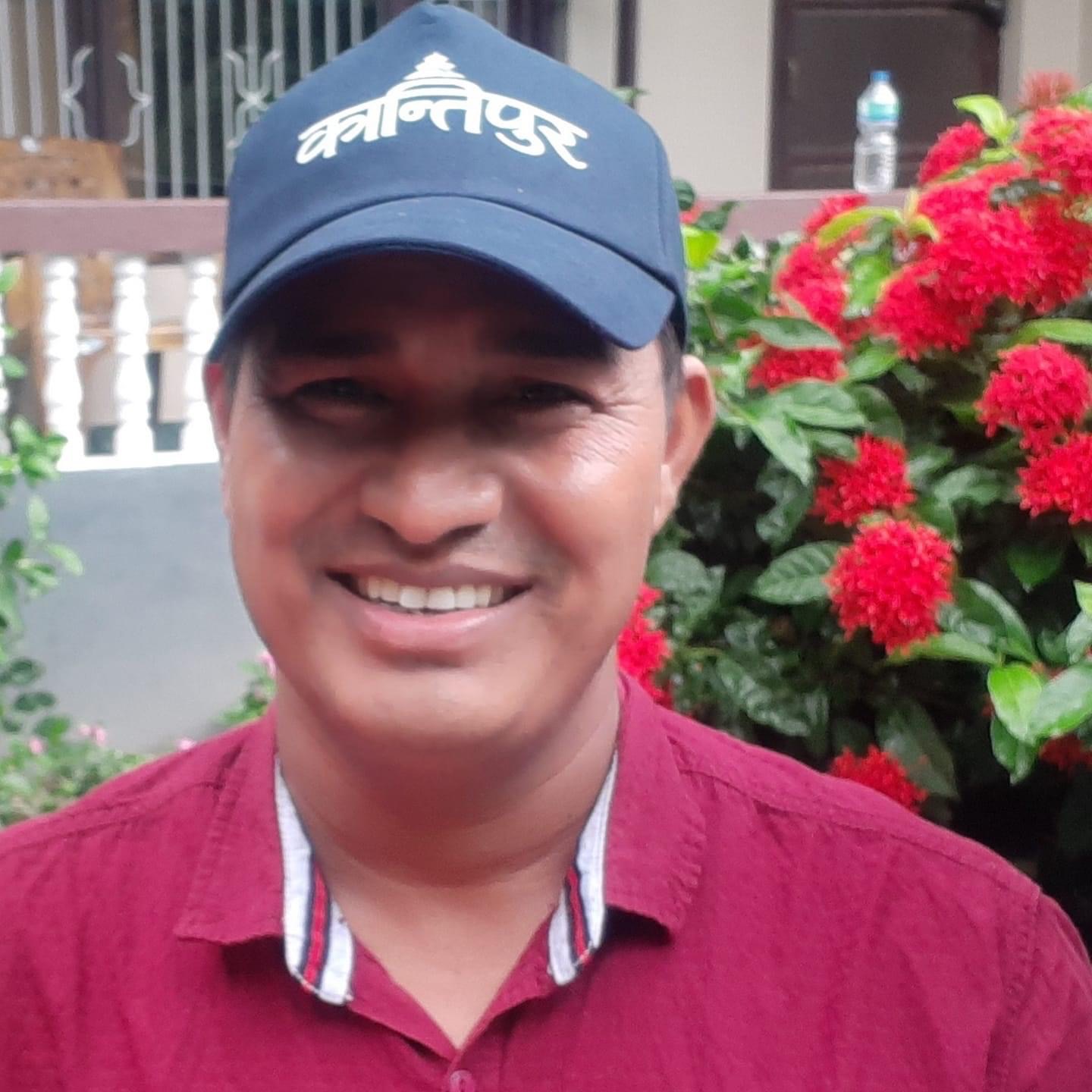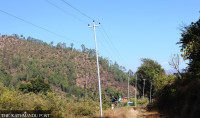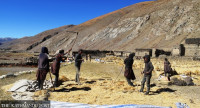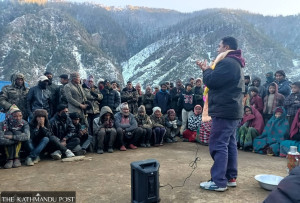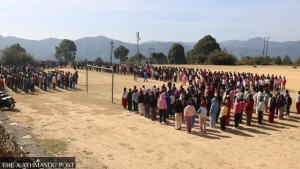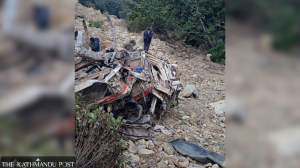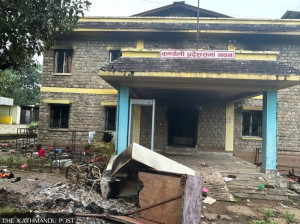Karnali Province
Karnali Province completely sealed off for a week
Even though the province hasn’t reported any cases so far, the provincial government decided to exercise caution in light of the growing coronavirus cases in two neighbouring provinces..jpg&w=900&height=601)
Kalendra Sejuwal
The Karnali provincial government has decided to completely seal off the province for seven days starting Monday as its neighbouring provinces reported a rise in cases of Covid-19.
A meeting of the Crisis Management Council, a provincial body formed in the wake of the Covid-19 outbreak, on Monday also decided to send physicians to 27 areas across the province to intensify testing.
“Physicians and health workers will be deployed to the offices of rural municipalities and major market areas,” said Dal Rawal, provincial Minister of Social Development and coordinator of the High Committee for Covid-19 Prevention and Control. “The team will intensify testing and, if necessary, set up isolation wards,” he said following a meeting of the body chaired by Chief Minister Mahendra Bahadur Shahi,
The announcement came as neighbouring Sudurpaschim province and Province 5 have reported five and 17 cases respectively so far.
Following the decision, no one will be allowed to enter or leave the province for seven days. The majority of health workers being deployed are from Karnali Provincial Hospital in Surkhet and the Jumla-based Karnali Health and Science Academy. Health workers from state-run health centres and district hospitals from each district will also be deployed if necessary, said Rawal.
During the ongoing lockdown, as many as 10,332 people rescued from various parts of the country have entered Karnali Province via Surkhet, according to the District Police Office, Surkhet. “Even during the lockdown, we have rescued residents of Karnali who were stranded in various parts of the country,” Inspector Gopal Rayamajhi, spokesperson for the office told the Post. “The movement will now be stopped.”
While the local units have rescued residents from various parts of the country, the rate of testing has been low for the lack of viral transport medium needed to transport swab samples, said Om Acharya, lab coordinator at the Provincial Health Directive.
“The low rate of testing is worrying,” he said. As of Monday, the province has tested 169 samples using the polymerase chain reaction method. None of the samples have tested positive so far. Over 5,300 rapid tests have also been conducted.
The province had brought two polymerase chain reaction machines seeking to accelerate testing. But the machines have hardly come to use since the province lacks equipment needed to transport swab samples, Acharya said.
Moreover, the directorate’s lab also lacks supplementary medical equipment needed for the machines, according to Reeta Bhandari, director at the provincial health directorate.
Because of this reason, returnees who have been quarantined are yet to be tested. Individuals in the quarantine facilities have been sent home after 14 days without testing.
“In an ideal situation, all individuals in quarantine should have been tested, but that has not happened,” Bhandari said. “Now we are planning to test select samples from the quarantined people who show symptoms of the disease.”




 20.12°C Kathmandu
20.12°C Kathmandu